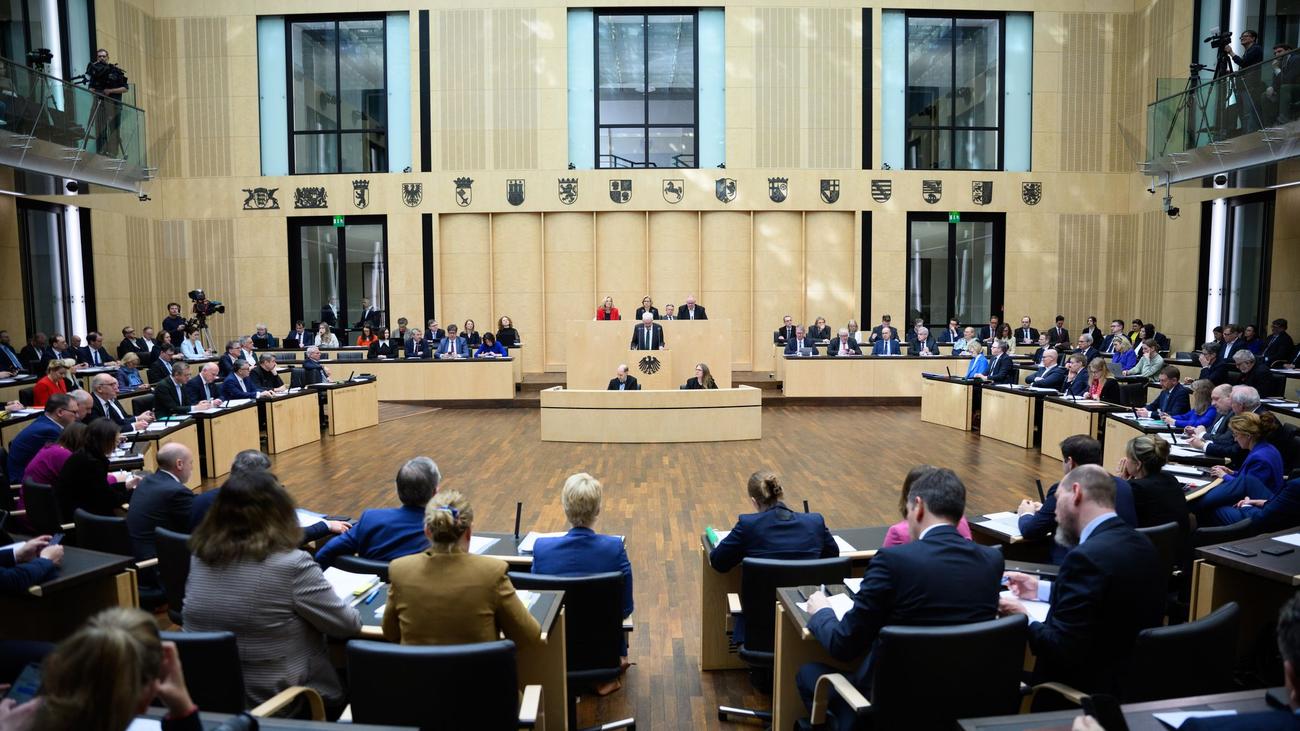Bundesrat: Schuldenplan – Auswirkungen & Zukunft: Was bedeutet das für Deutschland?
Germany's Bundesrat recently approved a crucial debt brake plan, sparking significant debate about its long-term impacts on the nation's economy and future. This plan, designed to manage Germany's substantial public debt, holds considerable implications for citizens, businesses, and the overall economic landscape. Understanding its intricacies and potential consequences is crucial for anyone interested in Germany's financial future.
Key Features of the Bundesrat's Schuldenplan
The Schuldenplan, or debt reduction plan, implemented by the Bundesrat aims to gradually reduce Germany's national debt over the coming years. Key features include:
- Stricter Spending Limits: The plan introduces stricter limitations on government spending, aiming to curb budget deficits. This involves careful scrutiny of all public expenditure, prioritizing essential services while streamlining less critical programs.
- Increased Tax Revenue Targets: The plan also incorporates strategies to increase tax revenue through various means, potentially including adjustments to tax rates or broadening the tax base. Details regarding specific tax measures remain under discussion.
- Prioritization of Investments: Despite the emphasis on debt reduction, the plan acknowledges the need for strategic investments in crucial areas like infrastructure, education, and digitalization. Balancing fiscal responsibility with necessary investments is a key challenge.
- Transparency and Accountability: The plan emphasizes increased transparency and accountability in government financial management. Regular reports and audits will be crucial for tracking progress and ensuring adherence to the plan's targets.
Auswirkungen: Potential Impacts on the German Economy
The Schuldenplan's effects on the German economy are complex and multifaceted. Potential impacts include:
Positive Impacts:
- Improved Credit Rating: Successful debt reduction could lead to an improved credit rating for Germany, reducing borrowing costs for the government and fostering greater investor confidence.
- Reduced Interest Payments: Lower debt levels will translate into reduced interest payments on government debt, freeing up resources for other essential areas.
- Enhanced Economic Stability: A more fiscally responsible approach could contribute to greater economic stability and long-term sustainable growth.
Potential Negative Impacts:
- Slower Economic Growth: Strict spending cuts could potentially hinder economic growth in the short term, particularly if they affect crucial investment areas.
- Increased Social Inequality: Depending on the specific implementation, the plan might disproportionately impact certain social groups, leading to concerns about increased inequality.
- Reduced Public Services: Cuts in public spending could lead to reductions in essential public services, potentially impacting healthcare, education, and infrastructure.
Zukunft: Challenges and Opportunities Ahead
The success of the Schuldenplan hinges on several factors. Effective implementation, ongoing monitoring, and adaptability to changing economic circumstances are critical.
- Global Economic Uncertainty: The global economic climate presents significant challenges, including inflation and potential recessions. The plan's effectiveness will be tested under these conditions.
- Political Will and Public Support: Sustained political will and public support are essential for the long-term success of the plan. Transparency and clear communication with the public will be vital.
- Technological Advancements: Investing in technological advancements, especially in green technologies, could help Germany achieve long-term economic growth while staying fiscally responsible.
Conclusion: Navigating Germany's Fiscal Future
The Bundesrat's Schuldenplan marks a significant step in Germany's efforts to manage its public debt. While the plan offers the potential for improved economic stability and long-term growth, it also presents potential challenges that need careful consideration and proactive management. Ongoing monitoring and adaptation will be crucial in ensuring the plan achieves its objectives while minimizing negative impacts on the German economy and its citizens. The coming years will be pivotal in assessing the long-term success and repercussions of this ambitious initiative.
Keywords: Bundesrat, Schuldenplan, Deutschland, debt reduction, German economy, fiscal policy, economic outlook, public debt, spending limits, tax revenue, economic growth, social inequality, future of Germany.
